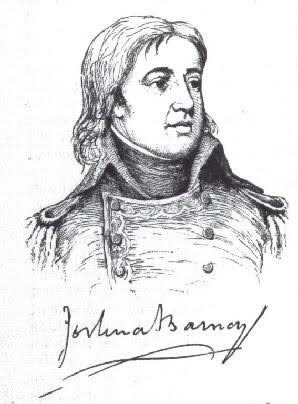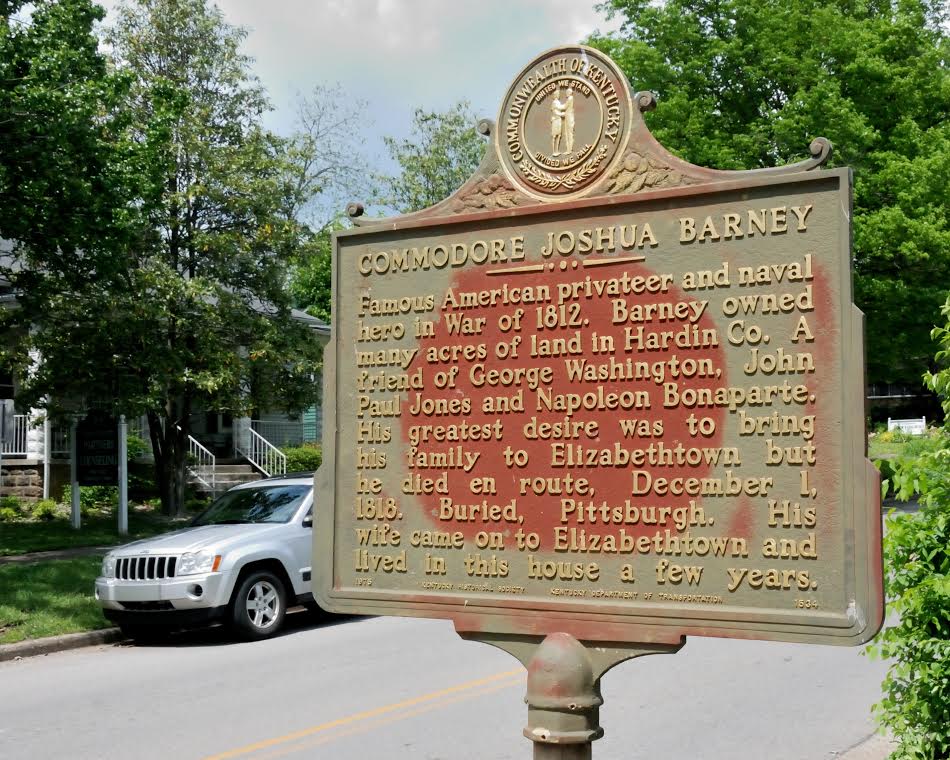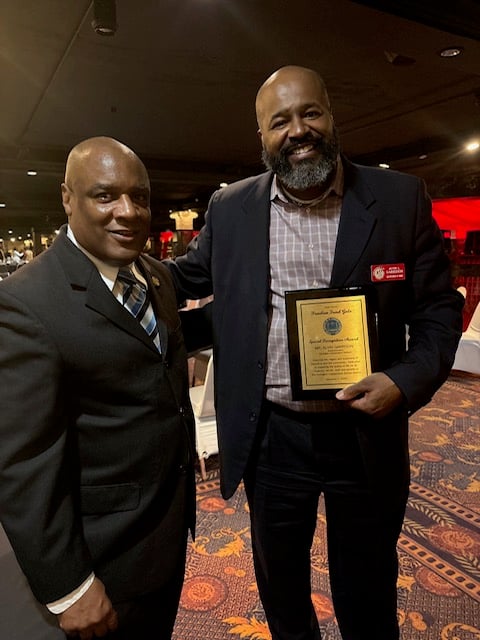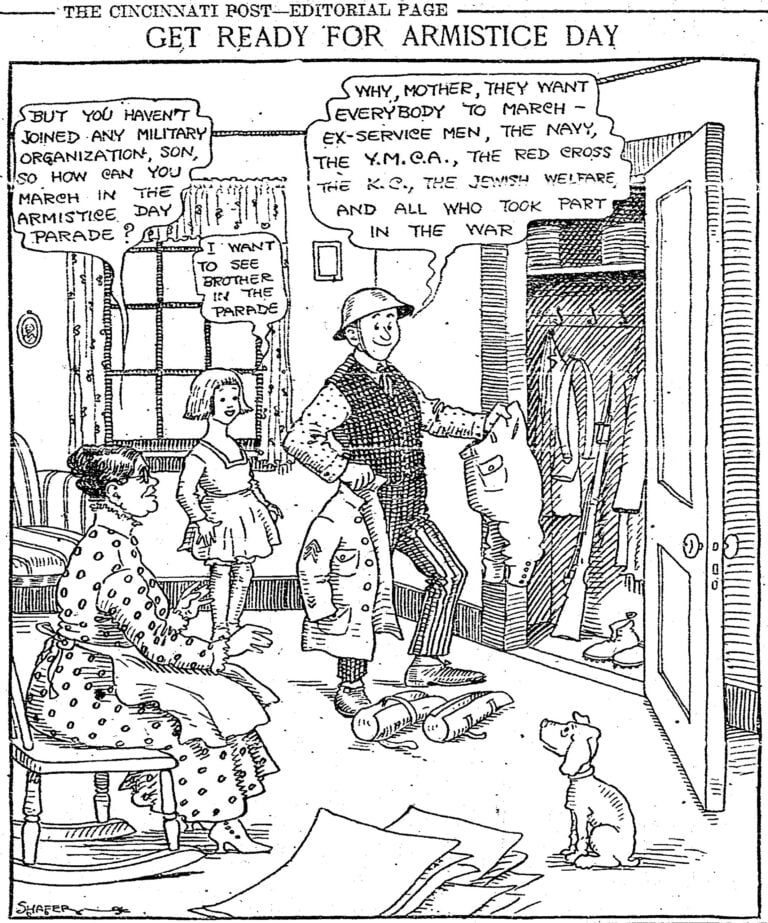By Berry Craig
NKyTribune columnist
After reputedly beating the British in 25 sea battles in three wars, Commodore Joshua Barney decided to forsake the briny deep for landlocked Elizabethtown in 1818.
“It is my intention to become a citizen of Kentucky,” the old salt declared. Thus, he added, “when I die, I know my bones will repose among congenial spirits.”
He perished in Pittsburgh, but his wife made it to the Hardin County seat, according to a state historical marker in town. The plaque is curbside at the site of a house where she lived “a few years.”

The sign explains that Barney was a “famous American privateer and naval hero in War of 1812” who “owned many acres of land in Hardin Co.” Barney’s circle of friends included President George Washington, John Paul Jones, dubbed “Father of the U.S. Navy;” and Emperor Napoleon Bonaparte of France.
“His greatest desire was to bring his family to Elizabethtown but he died en route, December 1, 1818,” the marker explains. “Buried, Pittsburgh.”
Nicknamed “the Bold Barney,” he was a hero of the American Revolution, the French Revolution and the War of 1812. Shot in the leg trying to keep the British from burning America’s national capital in 1814, Barney griped if he’d had “two thousand Kentuckians instead of seven thousand Marylanders, Washington city would not have been sacked nor our country disgraced.”
Nearby Baltimore, Barney’s hometown, escaped the torch when Fort McHenry, preserved as a national shrine, refused to yield. Barney had equipped the bastion with a big flag, reportedly the one Francis Scott Key immortalized as the “Star-Spangled Banner.”
Don’t bother looking for a Barney monument in Elizabethtown. The run-of-the-mill marker is all that anchors him to the community.
Barney had planned to take his family to Kentucky via flatboat from Pittsburgh. But he succumbed to his war wound.
Barney joined the fledgling American navy in early 1776, before the United States declared its independence from Mother Britain. He was just 16-years-old when he sailed off to the Revolutionary War.
King George’s navy reportedly captured and exchanged the teen numerous times. Once, the British kept him locked in a box on a ship for 53 days and fed him scanty rations. Half-starved, he was imprisoned in England but escaped to America and returned to sea as captain of the Hyder-Ally, a 16-gun privateer.
In 1782, Barney’s vessel rammed and seized the 70-ton British warship, General Monk. The U.S. Navy rechristened the vessel the General Washington and made Barney captain.
Also in 1782, the 23-year-old Barney commanded the ship on a fateful voyage to France “bearing dispatches for Benjamin Franklin” and returning “with the French loan to aid independence stored ‘in chests of gold and barrels of silver,’” according to George K. Holbert’s 1943 article about Barney in The Register of the Kentucky Historical Society.

As a captain in the French fleet in the 1790s, Barney again proved his valor and seamanship battling the hated British. He earned praise from Napoleon and invitations to lavish parties sent by Josephine, the emperor’s wife.
Back in Baltimore, Barney hosted Napoleon’s youngest brother, Jerome, and his bride, Elizabeth, a local socialite. In 1812, he again went to war against Great Britain. But the last time he led men was in a land battle, at Bladensburg, Md., on Aug. 24, 1814.
The British raiders were bound for Washington, which they aimed to burn in retaliation against an American force that set ablaze York, the capital of Upper Canada, in 1813. (York is Toronto today.)
When the Redcoats attacked, Barney’s Maryland militia chose flight over fight. The British sneeringly called the skedaddle “the Bladensburg Races” and proceeded to “light up” Washington, as one of the British commanders expressed the arson.
Outnumbered a dozen to one, Barney stood his ground with only 500 sailors and Marines. Felled by a musket ball, the commodore ordered his men to leave him and save themselves. As a tribute to a brave foe, the British released Barney, Holbert wrote. Bladensburg was said to be the only battle Barney ever lost.
Barney retired from the Navy in 1815. Before he set out for Kentucky, he had been feted as a hero on visits to Louisville and Frankfort. Despite his fame as a fighting sailor, probably few people in Elizabethtown know “The Bold Barney’s” connection to their town.
Berry Craig of Mayfield is a professor emeritus of history from West Kentucky Community and Technical College in Paducah and the author of five books on Kentucky history, including True Tales of Old-Time Kentucky Politics: Bombast, Bourbon and Burgoo and Kentucky Confederates: Secession, Civil War, and the Jackson Purchase. Reach him at bcraig8960@gmail.com






















